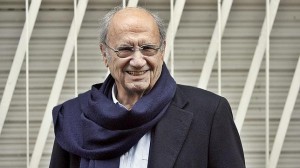Four years ago, I requested and received authorization from Pere Portabella to publish in English translation two lengthy texts of his — a lecture that he gave in 2009 when he was awarded an honorary doctoral degree by the Universidad Autónoma of Barcelona and the even lengthier (over twice as long) “Prologue” he wrote and published for Mutaciones del Cine Contemporáneo (2010), the Spanish translation of Movie Mutations: The Changing Face of World Cinephilia (2003), which I coedited with Adrian Martin. The first of these was an unsigned English translation that Nicole Brenez sent to me; the second was a makeshift translation hastily but generously done by two of Rob Tregenza’s students at Virginia Commonwealth University, Daniel Schofield and Caleb Plutzer. The original plan was for both of these pieces to appear in the online journal Lola, but for a variety of reasons, this didn’t pan out, and both these texts were recently returned to me. For now, I am opting to reproduce the translation of the speech in three consecutive installments. — J.R.
Rafael Sánchez Ferlosio, the fiction and essay writer, defines “lyrical poetry as that which does not strictly have any ‘recipients’, because it does not communicate any semantic content at all; instead it has just ‘users’, and their ‘use’ consists precisely of taking the place of the ‘id’ in the poem. Not that of the poet, but rather of sort of set of pigeonholes from which they can express their feelings and emotions.” The readers/viewers live their own experience while reading or watching a film, and they complete them and round them off from their own viewpoint. And what is fundamental is that the reader/viewer and user access it as an active, participating subject, as a protagonist. Nowadays, the viewer’s role as a protagonist who takes part in the film without intermediaries is an ever more widespread demand. Definitively, the idea is to re-examine or do away with the epitome of the Aristotelian narrative formula, which is valid, but not the only way. However, not the narrative itself as a creative criterion. We must not forget that all viewers, the uncritical and users/readers, when a film is screened, know that what they are seeing is not actually taking place, and they always move into the semantic realm of the cinema, with a significant presence of film myths existing in their imaginary. Luis Buñuel deserves special mention. 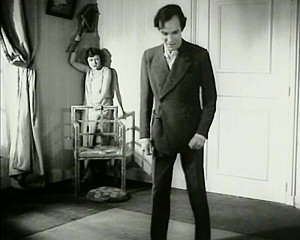
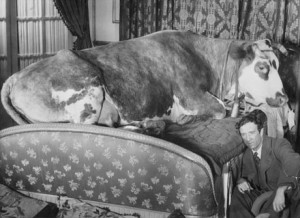

Anyone who attempts to approach the contemporary art history of the twentieth century must not leave out or set aside Luis Buñuel. Suffice it to remind you of three of his films, Un Chien andalou, L’Âge d’or and Las Hurdes. With these three films alone, Luis Buñuel entered history as a filmmaker with full rights, as well as becoming a noteworthy member of one of the most emblematic movements of the early decades of the twentieth century, Surrealism and the Dadaism movement. Even if Luis Buñuel had done nothing more and had not filmed another other movies, he would still be found amongst those who farm part of the inner core of avant-garde art movements in the period between wars, an essential period for us. Luis Buñuel set off on the search for a free form of narrative on the basis of the poetic and metaphoric resonances of language. He steers through hidden assumptions more than declared intentions: free, evocative, suggestive associations, all outside of what was just barely acceptable in accordance with pre-established rules for regular production, which was tied down to traditional ways of telling stories, star-struck by the huge potential held by cinema to draw viewers in and become the most popular show of the twentieth century, under the effects of reality and its ability to inspire awe and perplexity in movie-goers before this new and wonderful moving spectacle, thanks to a formula that was as well-tested as it was effective. Luis Buñuel and Salvador Dalí broke away from this institutional continuity and built a story without any sort of relationship between sequences, obsessed with ensuring there was not the slightest possibility of creating any narrative link amongst them in any way. 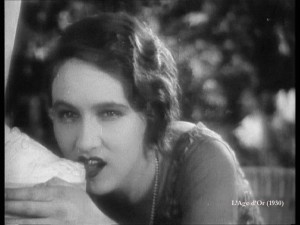 L’Âge d’or was considered to be a truly surrealist film by André Breton. However, after just a few days, the cinema where it premiered was attacked by reactionary groups, with threats and a great deal of unrest. The film was prohibited. Along the lines of Marcel Duchamp: Anti-art. Or along those later proposed by Roland Barthes: the work of art as an object/artifact. The most extreme radicalism went beyond the limits of what could be tolerated by the system, which often meant the destruction of the story for the those involved. Exile came, and Luis Buñuel leapt from a scenario of subversion and the deciphering of dominant codes to the stages of the movie studios in Mexico, as just another employee on the payroll. Luis Buñuel prepared to forge a path for himself, on the basis of this Copernican inversion of his proposals for transgressing the system, turning to the real and unquestionable possibility offered to him by the standard production system. And he did so successfully. At this point, we could repeat the same as before, but the other way around: if Luis Buñuel had never made any films before arriving in Mexico, because of what he did afterwards he would still hold an honorable position in the history of film, though in this case as one of the classics.
L’Âge d’or was considered to be a truly surrealist film by André Breton. However, after just a few days, the cinema where it premiered was attacked by reactionary groups, with threats and a great deal of unrest. The film was prohibited. Along the lines of Marcel Duchamp: Anti-art. Or along those later proposed by Roland Barthes: the work of art as an object/artifact. The most extreme radicalism went beyond the limits of what could be tolerated by the system, which often meant the destruction of the story for the those involved. Exile came, and Luis Buñuel leapt from a scenario of subversion and the deciphering of dominant codes to the stages of the movie studios in Mexico, as just another employee on the payroll. Luis Buñuel prepared to forge a path for himself, on the basis of this Copernican inversion of his proposals for transgressing the system, turning to the real and unquestionable possibility offered to him by the standard production system. And he did so successfully. At this point, we could repeat the same as before, but the other way around: if Luis Buñuel had never made any films before arriving in Mexico, because of what he did afterwards he would still hold an honorable position in the history of film, though in this case as one of the classics. 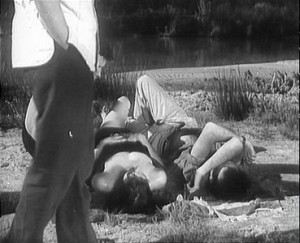 In 1960, during the Cannes Film Festival, which we competed at with Los Golfos (The Delinquents), the first film directed by Carlos Saura, we all but physically ran into Luis Buñuel in the elevator of the hotel where we were staying. It was an unforgettable encounter. Luis Buñuel attended the screening of Los Golfos and hugged us as if giving us his blessing. In the cinema, the ovation was amazing. I proposed to Buñuel that he come to Madrid, which he did for the summer. Luis Buñuel’s return took place during some difficult years of shameful silences and very notable absences, with a memory that had been broken or severely battered. But the story does not end here. This encounter with Luis Buñuel, as with so many other exiles, was of enormous importance, and to more than just people in film: to get an idea of what things were like during the dictatorship, one need only remember José Bergamín, a writer, poet, essayist and playwright, another emblematic personage with whom Luis Buñuel coincided in Madrid, and who was forced to go back into exile. Bergamín was subjected to ceaseless persecution by then Minister of Information and Tourism, Manuel Fraga lribarne, until forcing him to leave the country. One of the things which unleashed his fury was a document in which the torture to which many detainees were subjected during strikes and demonstrations in Asturias were denounced (1962). Bergamín was the first person to sign the document. One of the humiliations suffered by the detainees consisted of cutting their hair off, and a group of female protestors even had their heads shaved. Given the denunciation of these events, the minister responded with disdain: “It’s no big deal. Their hair will grow back anyway, and they’ll be able to comb it however they wish.” Meanwhile, the government had time to sign the “approval” of the sentence and execute Julián Grimau, a Communist, and anarchists Granados and Delgado in 1963. It was in this atmosphere that I proposed to Luis Buñuel that he make a movie to be filmed in Madrid, and in the month of October he wrote to me to tell me about Viridiana. All of us who work in film know that movies are not just made, already a great task in and of itself, but they must also be put together and prepared, and to do that sometimes you have to join forces with others. I would expressly like to mention Domingo Dominguín, a bullfighter, Communist and movie producer. I know that today he is completely unknown to most people, but Buñuel felt special affection for him. Those difficult years were made easier, more light-hearted and more bearable in the company of Domingo. His fine-tuned intuition and sense of humor could only compete with Luis Buñuel’s. Domingo holds a place in this history, and I would like these lines to serve to make a record of it. I suppose that at this stage of history, proposing a film to Luis Buñuel in that atmosphere stifled by systematic repression, unstoppable censorship and an untrusting government was not only difficult. Its beginning was the story of a nearly impossible attempt. The truth is that it moved forward and ended where everything had first started, in Cannes, with a resounding success in the literal sense of the word, with the Palme d’Or having been awarded to Viridiana. “The work of art,” the film, converted into “the object-artifact” that set off the dictatorship’s and the Vatican’s alarm bells, thanks to the spectacular media repercussion of the prize.
In 1960, during the Cannes Film Festival, which we competed at with Los Golfos (The Delinquents), the first film directed by Carlos Saura, we all but physically ran into Luis Buñuel in the elevator of the hotel where we were staying. It was an unforgettable encounter. Luis Buñuel attended the screening of Los Golfos and hugged us as if giving us his blessing. In the cinema, the ovation was amazing. I proposed to Buñuel that he come to Madrid, which he did for the summer. Luis Buñuel’s return took place during some difficult years of shameful silences and very notable absences, with a memory that had been broken or severely battered. But the story does not end here. This encounter with Luis Buñuel, as with so many other exiles, was of enormous importance, and to more than just people in film: to get an idea of what things were like during the dictatorship, one need only remember José Bergamín, a writer, poet, essayist and playwright, another emblematic personage with whom Luis Buñuel coincided in Madrid, and who was forced to go back into exile. Bergamín was subjected to ceaseless persecution by then Minister of Information and Tourism, Manuel Fraga lribarne, until forcing him to leave the country. One of the things which unleashed his fury was a document in which the torture to which many detainees were subjected during strikes and demonstrations in Asturias were denounced (1962). Bergamín was the first person to sign the document. One of the humiliations suffered by the detainees consisted of cutting their hair off, and a group of female protestors even had their heads shaved. Given the denunciation of these events, the minister responded with disdain: “It’s no big deal. Their hair will grow back anyway, and they’ll be able to comb it however they wish.” Meanwhile, the government had time to sign the “approval” of the sentence and execute Julián Grimau, a Communist, and anarchists Granados and Delgado in 1963. It was in this atmosphere that I proposed to Luis Buñuel that he make a movie to be filmed in Madrid, and in the month of October he wrote to me to tell me about Viridiana. All of us who work in film know that movies are not just made, already a great task in and of itself, but they must also be put together and prepared, and to do that sometimes you have to join forces with others. I would expressly like to mention Domingo Dominguín, a bullfighter, Communist and movie producer. I know that today he is completely unknown to most people, but Buñuel felt special affection for him. Those difficult years were made easier, more light-hearted and more bearable in the company of Domingo. His fine-tuned intuition and sense of humor could only compete with Luis Buñuel’s. Domingo holds a place in this history, and I would like these lines to serve to make a record of it. I suppose that at this stage of history, proposing a film to Luis Buñuel in that atmosphere stifled by systematic repression, unstoppable censorship and an untrusting government was not only difficult. Its beginning was the story of a nearly impossible attempt. The truth is that it moved forward and ended where everything had first started, in Cannes, with a resounding success in the literal sense of the word, with the Palme d’Or having been awarded to Viridiana. “The work of art,” the film, converted into “the object-artifact” that set off the dictatorship’s and the Vatican’s alarm bells, thanks to the spectacular media repercussion of the prize. 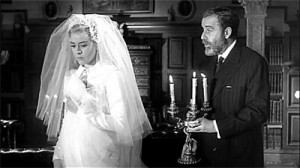 When we found out that the prize was going to Viridiana, we went to rescue the government’s Director General of Film, José Muñoz Fontán, who, after seeing the film for the first time on the night of its screening, and the enthusiastic reaction of viewers, ran out of the Palais du Cinéma and took refuge in his hotel room. The next morning, we went to see him to propose that, bearing in mind Luis Buñuel was in Paris, it was his responsibility to accept the Palme d’Or, as the highest representative of the Spanish film world. That is how we proposed it to him, in those words, and he accepted without us having to insist. As was verified just a few hours before going to get the prize, it was truly a poisoned gift. If the régime accepted the prize, then our backs would be covered; if not, what came later would be the result. And what came later did not take long to occur.
When we found out that the prize was going to Viridiana, we went to rescue the government’s Director General of Film, José Muñoz Fontán, who, after seeing the film for the first time on the night of its screening, and the enthusiastic reaction of viewers, ran out of the Palais du Cinéma and took refuge in his hotel room. The next morning, we went to see him to propose that, bearing in mind Luis Buñuel was in Paris, it was his responsibility to accept the Palme d’Or, as the highest representative of the Spanish film world. That is how we proposed it to him, in those words, and he accepted without us having to insist. As was verified just a few hours before going to get the prize, it was truly a poisoned gift. If the régime accepted the prize, then our backs would be covered; if not, what came later would be the result. And what came later did not take long to occur. 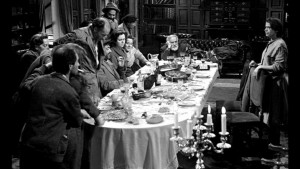 The Vatican, through an editorial in the Osservatore Romano, really tore into us. Still today, I do not know whether they were threatening us or directly considering us excommunicated. The Vatican was furious. When our man presented himself before the Minister of Information and Tourism in Madrid, with Palme d’Or in hand and the Vatican’s breath down his neck, he crumbled. The Director General was immediately fired and underwent a spectacular fall from the sixth floor of the Ministry to the basement, from which he never again emerged. A short time later, General Franco dismissed Minister Arias Salgado, who was replaced by Manuel Fraga Iribarne. For those who had the good fortune not to live through the dictatorship, a dismissal due to what is nowadays referred to as “collateral damage” was unimaginable, and even less so as the result of a film. Upon writing these lines, I cannot avoid a certain sensation of slight complicity with the dismissed Director General. The truth is that, without intending to do so, he contributed to improving the end of Viridiana. As a rule, we producers and directors were required to appear before the Director General after screenplays passed through the filter of censors. The reason was quite simple. You could film the movie, but once it was finished, the nightmare started over again. The Censorship Commission could mutilate or prohibit its screening if you failed to listen to reason. When we appeared to see him with Luis Buñuel, everything seemed to be going as planned until the Director General unexpectedly said, “Don Luis, there is a problem.” And in the midst of an expectant silence, he went on, “You can’t deny that when, in the final scene of the movie, the young nun in the nightgown heads for her handsome cousin’s bedroom, she knocks on the door, he invites her in, and the door closes behind her, and the words The End appear, people might think quite badly of what might happen behind that door.” Buñuel remained silent. It was obvious that the person who was already thinking the worst was the Director General. However, a few seconds later, that very same Director General found the solution to remedy the situation and said, “Of course, if there were another person in the bedroom when the young nun walks in, since there would be three people, there wouldn’t be any problem.” You have to admit it was a brilliant idea. Buñuel was awe-stricken. A bashful Luis Buñuel was receiving this suggestion to replace a relationship between a couple with a splendid ménage à trois from a dignified representative of the régime’s most reactionary institution. And that is the way it was filmed: with the nun (Silvia Pinal), the cousin (Paco Rabal) and the maid (Margarita Lozano).
The Vatican, through an editorial in the Osservatore Romano, really tore into us. Still today, I do not know whether they were threatening us or directly considering us excommunicated. The Vatican was furious. When our man presented himself before the Minister of Information and Tourism in Madrid, with Palme d’Or in hand and the Vatican’s breath down his neck, he crumbled. The Director General was immediately fired and underwent a spectacular fall from the sixth floor of the Ministry to the basement, from which he never again emerged. A short time later, General Franco dismissed Minister Arias Salgado, who was replaced by Manuel Fraga Iribarne. For those who had the good fortune not to live through the dictatorship, a dismissal due to what is nowadays referred to as “collateral damage” was unimaginable, and even less so as the result of a film. Upon writing these lines, I cannot avoid a certain sensation of slight complicity with the dismissed Director General. The truth is that, without intending to do so, he contributed to improving the end of Viridiana. As a rule, we producers and directors were required to appear before the Director General after screenplays passed through the filter of censors. The reason was quite simple. You could film the movie, but once it was finished, the nightmare started over again. The Censorship Commission could mutilate or prohibit its screening if you failed to listen to reason. When we appeared to see him with Luis Buñuel, everything seemed to be going as planned until the Director General unexpectedly said, “Don Luis, there is a problem.” And in the midst of an expectant silence, he went on, “You can’t deny that when, in the final scene of the movie, the young nun in the nightgown heads for her handsome cousin’s bedroom, she knocks on the door, he invites her in, and the door closes behind her, and the words The End appear, people might think quite badly of what might happen behind that door.” Buñuel remained silent. It was obvious that the person who was already thinking the worst was the Director General. However, a few seconds later, that very same Director General found the solution to remedy the situation and said, “Of course, if there were another person in the bedroom when the young nun walks in, since there would be three people, there wouldn’t be any problem.” You have to admit it was a brilliant idea. Buñuel was awe-stricken. A bashful Luis Buñuel was receiving this suggestion to replace a relationship between a couple with a splendid ménage à trois from a dignified representative of the régime’s most reactionary institution. And that is the way it was filmed: with the nun (Silvia Pinal), the cousin (Paco Rabal) and the maid (Margarita Lozano). 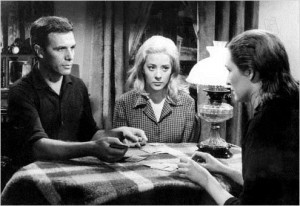 The Ministry made the film vanish. Every trace of the movie reel, the censorship report, etc., all of the documentation was voided. Viridiana had disappeared. The paradox is that, according to them, we had not made the film, because it did not even exist. They did not prohibit it, they erased it into oblivion. In the yearly record which the Directorate General of Film published each year with a list of all the films made, Viridiana was not there. When I said before that everything vanished, I did not do so in a figurative sense, as you can verify. It was spectacular. It was something very serious but -why not say so?- also quite funny. After eight years went by, the Film Censorship Commission of the Ministry of Information, at a meeting held on January 30, 1969, prohibited the screening of the film Viridiana, then considered to be of Mexican nationality. It was literally described as: “Blasphemous, anti-religious. Cruelty and disdain for the poor. Morbid and brutal, as well. A venomous, corrosive movie in terms of its filmmaking craftiness in combining images, reference and musical background.” We also lived this as a victory of the entire opposition to the Régime. Buñuel had already proclaimed back in the twenties, “I’m an atheist, thank God.” A short time after the Viridiana scandal, strolling along La Concha beach in San Sebastián with Javier Pradera, a publisher, and Luis Martín Santos, a psychiatrist, writer and Socialist Party director detained and jailed many times, I realized that, I was the only one of the three who had not yet been arrested and interrogated, so I asked Martín Santos, as a professional, what the best attitude was to display during an interrogation. “The first time, you should deny the evidence, no matter how obvious it seems: you aren’t the one they say you are, and you don’t know any of the people they say are your friends or accomplices. They’ll get the message and you’ll find out how much you can take, depending on the treatment you get and the time that goes by during the interrogation. Only when you find yourself in this situation will you know.” Throughout the course of the conversation, Luis Martín Santos warned that “our political sensitivities are very vulnerable at times like these. It is humiliating to be caught trying to escape through a window in your home. Words and silence are the only tools to use in your defense.” Ten years later, with Manolo Sacristán, a Philosophy professor at the School of Economics who was fired by the university in 1965 because of his stance against Franco, but who was re-hired at the University of Barcelona after Franco’s death, then as a tenured professor of Social Science Methodology, we were returning from a demonstration and walking down the Diagonal, entertained by one of our usual lengthy controversies, when all of a sudden we crossed paths with a large group of people who had been broken up from the demonstration and were running away from a police raid. Manolo said to me, “You and I will not run in front of this riffraff, out of dignity,” referring to the police as they ran in the opposite direction from us. The conversation, which had been interrupted, more or less revolved around the topics which concerned us conceptualists and Marxists, regarding the value of change or that of the use of cultural production, regarding the entertainment appeal of aesthetic transgression and the devaluation of the object of art and the dissociation of intuition and materialist, anti-idealistic rigor. Manolo, undaunted, returned to our dialogue to say to me, “We people who have a materialistic viewpoint have made a serious mistake, which was eliminating the right to contemplate. Listening to Mozart for pleasure, or looking at a landscape for enjoyment: contemplation also sets us free…” As we crossed paths with the police, after a delightful moment of silence, and given the circumstances of the moment, we resumed our conversation, with even greater interest in the most appropriate tactics for fighting against the dictatorship. (to be continued)
The Ministry made the film vanish. Every trace of the movie reel, the censorship report, etc., all of the documentation was voided. Viridiana had disappeared. The paradox is that, according to them, we had not made the film, because it did not even exist. They did not prohibit it, they erased it into oblivion. In the yearly record which the Directorate General of Film published each year with a list of all the films made, Viridiana was not there. When I said before that everything vanished, I did not do so in a figurative sense, as you can verify. It was spectacular. It was something very serious but -why not say so?- also quite funny. After eight years went by, the Film Censorship Commission of the Ministry of Information, at a meeting held on January 30, 1969, prohibited the screening of the film Viridiana, then considered to be of Mexican nationality. It was literally described as: “Blasphemous, anti-religious. Cruelty and disdain for the poor. Morbid and brutal, as well. A venomous, corrosive movie in terms of its filmmaking craftiness in combining images, reference and musical background.” We also lived this as a victory of the entire opposition to the Régime. Buñuel had already proclaimed back in the twenties, “I’m an atheist, thank God.” A short time after the Viridiana scandal, strolling along La Concha beach in San Sebastián with Javier Pradera, a publisher, and Luis Martín Santos, a psychiatrist, writer and Socialist Party director detained and jailed many times, I realized that, I was the only one of the three who had not yet been arrested and interrogated, so I asked Martín Santos, as a professional, what the best attitude was to display during an interrogation. “The first time, you should deny the evidence, no matter how obvious it seems: you aren’t the one they say you are, and you don’t know any of the people they say are your friends or accomplices. They’ll get the message and you’ll find out how much you can take, depending on the treatment you get and the time that goes by during the interrogation. Only when you find yourself in this situation will you know.” Throughout the course of the conversation, Luis Martín Santos warned that “our political sensitivities are very vulnerable at times like these. It is humiliating to be caught trying to escape through a window in your home. Words and silence are the only tools to use in your defense.” Ten years later, with Manolo Sacristán, a Philosophy professor at the School of Economics who was fired by the university in 1965 because of his stance against Franco, but who was re-hired at the University of Barcelona after Franco’s death, then as a tenured professor of Social Science Methodology, we were returning from a demonstration and walking down the Diagonal, entertained by one of our usual lengthy controversies, when all of a sudden we crossed paths with a large group of people who had been broken up from the demonstration and were running away from a police raid. Manolo said to me, “You and I will not run in front of this riffraff, out of dignity,” referring to the police as they ran in the opposite direction from us. The conversation, which had been interrupted, more or less revolved around the topics which concerned us conceptualists and Marxists, regarding the value of change or that of the use of cultural production, regarding the entertainment appeal of aesthetic transgression and the devaluation of the object of art and the dissociation of intuition and materialist, anti-idealistic rigor. Manolo, undaunted, returned to our dialogue to say to me, “We people who have a materialistic viewpoint have made a serious mistake, which was eliminating the right to contemplate. Listening to Mozart for pleasure, or looking at a landscape for enjoyment: contemplation also sets us free…” As we crossed paths with the police, after a delightful moment of silence, and given the circumstances of the moment, we resumed our conversation, with even greater interest in the most appropriate tactics for fighting against the dictatorship. (to be continued)

